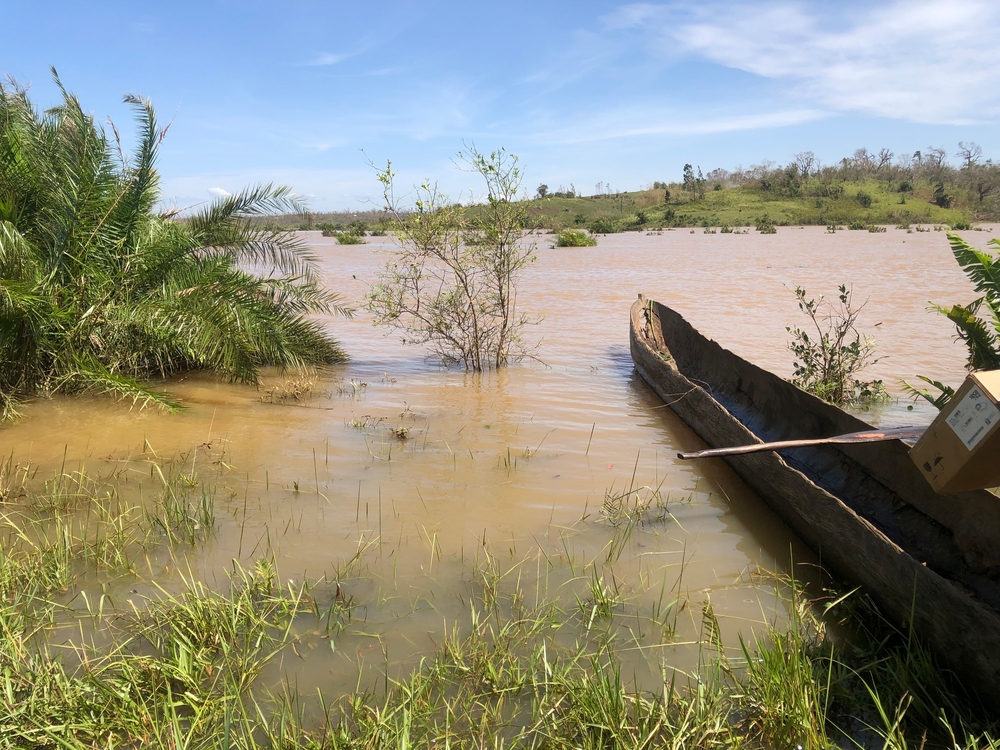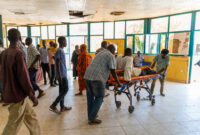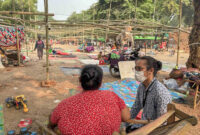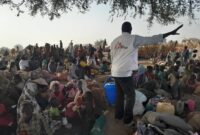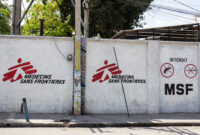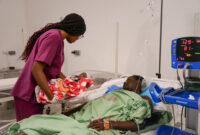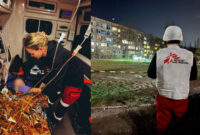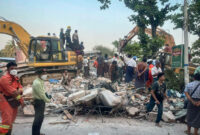Madagascar: People in Mananjary cut off from healthcare after two cyclones
Between February 5 and 22, 2022, cyclones Batsirai and Emnati hit the east coast of Madagascar, destroying numerous healthcare centres. More than 150,000 people have been affected by these cyclones. Doctors Without Borders/Médecins Sans Frontières (MSF) emergency teams are struggling to reach isolated rural areas where people have very limited access to healthcare and other essential services.
It takes almost two hours for the MSF emergency team to cover the 20 kilometres that separate the city of Mananjary – where they are based since Cyclone Batsirai hit – from the village of Mahatsara Lefaka. There, the roof of the healthcare centre has been ripped off along with the solar panels that provided its electricity.
“Before the cyclones and the destruction of the health centre, there were consultations every day here,” explains Nicole Vololoniaina, a midwife who has been working at the healthcare centre for 18 months. “Today is the first time that I have come back in three weeks.” She is accompanying the MSF team that day as they provide consultations to the many residents who have come to the village school, where the medical team have installed the mobile clinic. For nearly a month, local populations had not had any access to healthcare.

Among the 37 people seen that day was a child of nine months who had an infected abscess: his leg was wounded in two places and without antibiotics he risked a septic shock. “The abscess is a complication of the original wound,” said Dr. Johnson Heritiana, who works with MSF. “His condition has deteriorated because he has not been able to get any care. His parents took him to a pharmacy in Mananjary where they paid for three doses of antibiotics. The treatment was insufficient, but after the cyclone their priority was to rebuild the roof of their house and to find water and food. They don’t have the means to pay for any new medical treatment.” The child and his parents were taken by the MSF team to Sainte-Anne Hospital, in Mananjary, where he was admitted for treatment.
Rebuilding two times
Most people affected by this most recent cyclone had managed to repair their houses after Cyclone Batsirai, but construction materials have become rare and expensive and today they do not have the money necessary to rebuild their houses a second time.
”Many people were injured during the first cyclone by the wood and the sheet metal that was ripped off by the wind,” continued Vololoniaina. “People who didn’t have any shelter fell ill, they coughed, and we saw that people also had diarrhoea because they were drinking polluted water from the river.”

The team also treated people with respiratory infections, malaria, and chronic diseases. “Of 19 people tested, 11 were positive for malaria – and that’s only the people that were presenting symptoms,” explained Dr Johnson Heritiana. “It’s the season where normally we see a peak in malaria, but the pools of stagnant water that have collected after the cyclones have aggravated the situation.”
An already precarious situation
In the district of Mananjary, access to water, food and other essential services was already difficult even before these two catastrophic cyclones. “We have identified around 20 malnourished children in the village,” said Vololoniaina, the midwife. “As treatment isn’t available in our health centre, we have to refer them to Mananjary. It takes more than three hours to walk to the city, and many people don’t go because they think that they will have to pay for care.”

The difficulties in terms of access to care are not recent in the region but the destruction of the health centre and damage to the main road are isolating even more Mahatsara Lefaka. NGOs are struggling to deploy there and must use all methods of transport available, from walking to canoes, to get there and evaluate the needs.
Other even more remote areas are even more deprived of humanitarian assistance and telecommunications are still not available in numerous places. MSF teams have carried out more than 250 consultations in rural areas of Mananjary District since the beginning of our intervention, in addition to more than 100 consultations per day in tents set up by MSF at the public hospital of Mananjary, which was destroyed by cyclone Batsirai.
